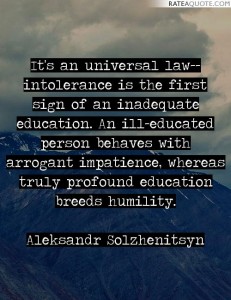Vision


I was completely bitchy in a blog draft this week, stemming from an online conversation. My editors noticed right off, “Uh, probably not the best mood for you to be writing for public consumption, Jill.” Thank God for them, because as I thought about it further, I realized that the situation I found myself in, does not happen outside my virtual world. I don’t keep friends or acquaintances, for that matter, who would assume the worst about me if we have an academic, political or ideological disagreement. So I was momentarily pissed off at people I don’t even know and I don’t have time for such a waste of emotional energy.
The experience of wading into the deep waters of two diametrically opposed positions from two people whose thoughts I respect was disheartening. Now, I only know the authors from online conversation but see them as reasonable, loving people from our previous virtual engagement. They both speak eloquently and definitively for their views but also convey some hard lines that I don’t personally subscribe to. The friends were perfectly polite IMO, but their tribes? Not so much. It is an example of the message I commonly sense in a lot of online communication, which is, “You are either with us or against us.”
My main point in commenting was that I saw truth, from both of these women’s positions. And I was for those truths, even though they didn’t cover any one position cleanly. And that was the rub. It seems, at least in virtual world, that ideology trumps personhood. In the specific conversation, I did not feel as if I was being treated as a person but rather some unlabeled sociopolitical category who was not towing the line.
I simply don’t get this attitude for the mere fact that none of us has the full truth or divine wisdom to know all about all, whatever the particular subject. In the arena of ideas and dialogue, I believe the real world and virtual world need not part ways on rules for effective communication. Like the fact that how we say things (or write them) is as important as what we say. And that controlling emotions is paramount in maintaining relationship while discussing hot button topics. (In my case, being aware of times I am overloaded and can’t communicate well at those particular times.) Not personalizing private opinions, meaning not being personally offended by another’s disagreement. Not personalizing also means not calling names. Crimeny, it’s like the internet made us forget our kindergarten lessons. And vision. Vision to see people as multi-faceted, complicated beings not yes or no men.
In many ways, the virtual world is the real world now. And like the real world, if you wish to make a difference, collecting voices in an echo chamber won’t cut it. There must be engagement between opposing opinions. This opens the door to the sharing of specialized knowledge. A wider vision than any one person has on their own. And for all, a willingness to learn something new. I learned a lot this week. My weaknesses in communication, my need to be willing to hear from my friends about those weaknesses and finally my need to listen and occasionally stay out of conversation that is over my head.
“If you gear up, put yourself on high alert and draw a line in the sand, it’s likely you’ll find the enemy you seek. On the other hand, expecting that the next person you meet will be as open to possibility as you are might just make it happen.” Seth Godin
(http://sethgodin.typepad.com/seths_blog/2017/09/looking-for-a-friend-or-a-fight.html)




Thanks Charles!